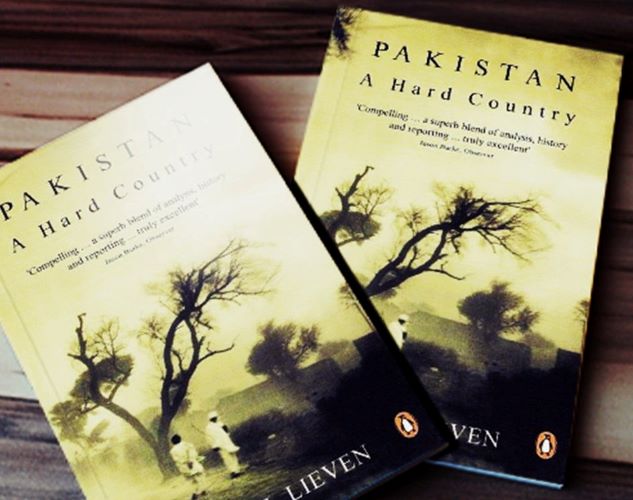
Lieven argues that Pakistan’s challenges are deeply rooted in its historical development, with a strong emphasis on the country’s tribal and feudal structures and the ensuing power dynamics
SHOUKAT LOHAR
Anatol Lieven’s book “Pakistan: A Hard Country” provides a deep and comprehensive analysis of the complexities, challenges, and contradictions that define Pakistan. Published in 2012, this seminal work offers valuable insights into the country’s history, society, politics, and regional dynamics. In this article, we will present a summary of the book and highlight key excerpts that shed light on Pakistan’s unique characteristics.
What’s in the book?
 “Pakistan: A Hard Country” delves into the multifaceted nature of Pakistan, examining its geography, history, demography, political structure, and cultural diversity. Lieven argues that Pakistan’s challenges are deeply rooted in its historical development, with a strong emphasis on the country’s tribal and feudal structures and the ensuing power dynamics. He explores the influence of these factors on the functioning of the state, institutions, and society.
“Pakistan: A Hard Country” delves into the multifaceted nature of Pakistan, examining its geography, history, demography, political structure, and cultural diversity. Lieven argues that Pakistan’s challenges are deeply rooted in its historical development, with a strong emphasis on the country’s tribal and feudal structures and the ensuing power dynamics. He explores the influence of these factors on the functioning of the state, institutions, and society.
Lieven posits that Pakistan’s primary challenge lies in its governance, which is hindered by weak state capacity and a prevalent culture of patronage, corruption, and nepotism. He examines the role of the military and analyzes its impact on Pakistan’s political landscape, highlighting its dominance and influence over civilian institutions. The book also addresses the complex relationship between Pakistan’s intelligence agencies and various non-state actors, including militant groups.
The author delves into Pakistan’s ethnic and regional divisions, exploring how these divisions shape the country’s political dynamics. He looks at the Baloch, Sindhi, Punjabi, and Pashtun communities, among others, and discusses the competing interests and tensions between them. Additionally, Lieven examines the role of Islam and its various interpretations in Pakistani society, shedding light on the diverse religious practices and the influence of religious institutions.
Lieven’s analysis extends to Pakistan’s foreign policy and its relationship with its neighbors, particularly India and Afghanistan. He explores the historical context of these relationships, the contentious border issues, and the impact of the Afghanistan conflict on Pakistan’s security and stability. The book also addresses Pakistan’s nuclear program and its implications for regional and global security.
Excerpts from the Book
- Pakistan’s governance challenges: “Pakistan’s political system is characterized by weak governance, institutional decay, and a culture of corruption, which hampers the state’s ability to effectively serve its citizens.”
- The military’s role in politics: “The Pakistani military’s influence extends beyond its traditional security domain, often shaping political decision-making and civilian institutions. This has resulted in a significant power imbalance between the military and elected governments.”
- Regional divisions: “Pakistan’s diverse ethnic and regional identities have often led to tensions and rivalries, with competing interests shaping political dynamics. These divisions pose challenges to national integration and stability.”
- Pakistan’s foreign policy: “Pakistan’s geopolitical location and historical conflicts with India and Afghanistan have shaped its foreign policy priorities. Balancing these relationships while safeguarding its national interests remains a persistent challenge.”
Conclusion
Anatol Lieven’s “Pakistan: A Hard Country” offers a comprehensive and insightful examination of the challenges and complexities faced by Pakistan. By delving into the country’s governance, politics, society, and regional dynamics, Lieven provides readers with a nuanced understanding of Pakistan’s unique characteristics. Although published in 2012, the book remains highly relevant for those seeking a deeper understanding of Pakistan’s history, challenges, and potential future trajectories.
________________
 Shoukat Lohar is Assistant professor in English at Mehran University of Engineering and Technology Jamshoro. He can be reached at Shoukat.ali@faculty.muet.edu.pk
Shoukat Lohar is Assistant professor in English at Mehran University of Engineering and Technology Jamshoro. He can be reached at Shoukat.ali@faculty.muet.edu.pk